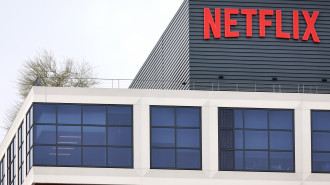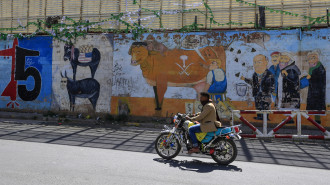
AlRawabi School For Girls: Season two or season taboo?

On February 15, Netflix announced the season season of the much-discussed Jordanian TV series, AlRawabi School for Girls. Set in Amman, the series offers a nuanced dive into the lives and fortunes of Jordanian high school girls.
The first season of AlRawabi received praise for its courageous exploration of taboos rarely discussed in Jordanian TV production, and as a Jordanian who experienced school bullying first-hand, the series has helped outsiders understand how bullying manifests in Jordan from one generation to the next.
"AlRawabi School for Girls, spanning both seasons, has become a real social phenomenon, reflecting on how the patriarchal system in Jordan pits women against other women"
The second season opens with a scene at an all-boys school where a group of students gang up on a classmate, mocking him and calling him tante. The word, french for aunt, is used in a Jordanian context to mean sissy. I was surprised, it felt real, and I was immediately hooked. Often in Jordanian TV there's a lack of empathy towards the queer community or men who do not conform to societal norms of gender.
Thereafter follows a powerful scene in which the bullied, effeminate boy is placed in prison alongside the man who murdered his sister in the previous season, a compelling scene which demands that we re-evaluate our perspective on justice. This side story featuring a male character in a series centred around a girls' school offers a truly eye-opening and innovative tangent.
Jordan on show
The second season of AlRawabi School for Girls has changed in other ways too. During the first season, I was disappointed by the lack of black students shown in the series. One of the main characters in the first season is a redhead, and while there are no official statistics on colour or ethnicity in Jordan, based on my lived experience, it's far more common to have black classmates than redheads.
Luckily AlRawabi has remedied this imbalance in the second season. Black girls are represented, some wearing the hijab and others showing their curly, afro hair. This is important. For a Jordanian series on Netflix, we must show the diversity of the country's students. I look forward to a third season where we will also see students with disabilities.
|
Throughout the series, Jordan's fascination with other cultures is also on display. In one of the graduation scenes, the popular girls of the year shock both the audience — and viewers at home — with a K-Pop-inspired performance, infused with Arabic. The lyrics speak of a new generation, where girls reject the traditions of a patriarchal society.
Girls vs. girls
Yet hypocrisy remains. During the performance, Farah, who has a plus-sized figure, is forced to do backstage tasks despite having an exceptional voice. One of the girls tells her, "Your presence and your image are sometimes more important than your talent."
In Amman, the first questions you hear when meeting someone are often 'Where do you live' and 'Where did you study' to see which social class you belong to. Another indication is your accent. Not long ago, accents indicated your place of birth. Now, the accent reflects social class.
If you come from West Amman, for example, your language often incorporates several English words and expressions, reflecting the English influence on your social background. As soon as your social class is identified, it's followed by behaviours aimed at exclusion and dissociation. AlRawabi School for Girls sheds light on both the class system in Amman, which begins at home, and the pervading influencer culture which has since taken off in these circles.
All in all, AlRawabi School for Girls, spanning both seasons, has become a real social phenomenon, reflecting on how the patriarchal system in Jordan pits women against other women. I sincerely hope that this trailblazing production will be translated into the local Jordanian industry, not just through international platforms like Netflix.
Hasan Kilani is an activist and writer on queer feminist politics in the Middle East.
Follow him on Twitter: @HasanAmman






 Follow the Middle East's top stories in English at The New Arab on Google News
Follow the Middle East's top stories in English at The New Arab on Google News


